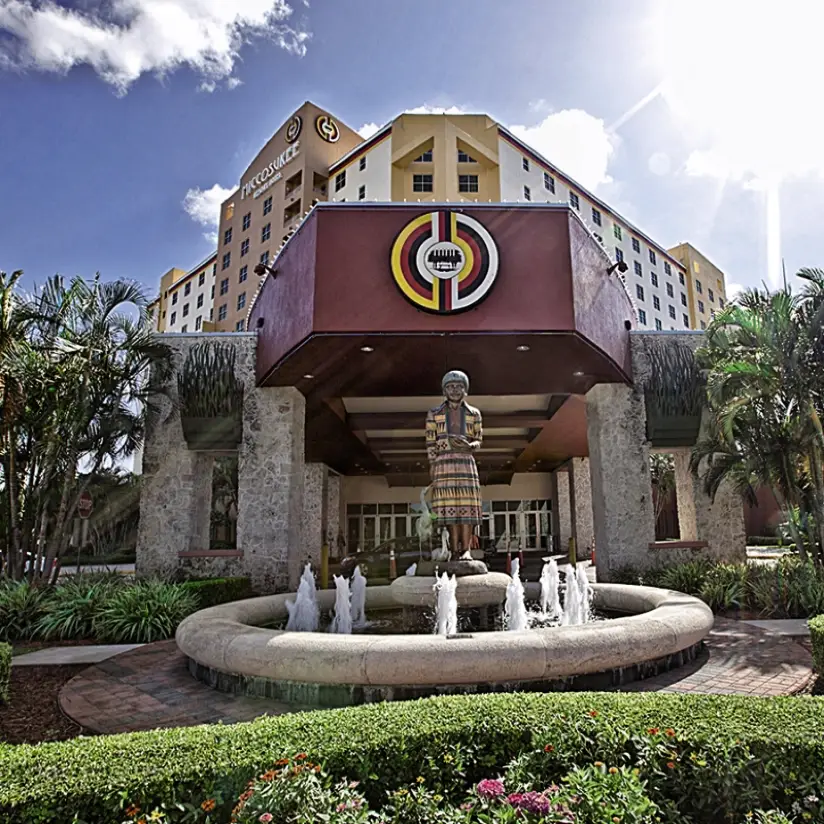Embezzled By Casino Employees, Laundered By Spouses: Miccosukee Tribe Sues To Recover Stolen $5.3 Million.
It was a caper worthy of the film “Goodfellas,” minus the violence.
But the tribe did not know its full extent seven years ago when the tipster told them that technicians employed to service the casino’s video gaming machines were manipulating them to create “ghost credits” that the employees were exchanging for cash, according to the complaint filed this month in U.S. District Court in Miami.
The lawsuit lays out the following series of events:
After getting the tip, the tribe conducted its own investigation, which led it to observe a single video technician inserting vouchers into gaming machines during a time no customers were playing.
Based on available facts, the tribe estimated that $16,478 had been swindled. That fell short of the $50,000 deductible in the casino’s $5 million theft policy from Great American Insurance Company.
Casino officials could not determine the method used to pull off the theft, how many people were involved, how long it was going on, and how much was stolen.
They summoned the Miccosukee Police Department, but the tribal police could not pinpoint how the casino’s machines were being manipulated or turn up enough evidence against their sole suspect to support criminal charges.

So the tribe called the FBI, which immediately began its own investigation and told tribe officials not to discuss the matter with anyone until it was concluded. At the FBI’s request, the tribe also hired an internal auditor specializing in the gaming industry to investigate what happened.
In August 2017, the auditor filed a report, which she shared with the FBI, revealing that multiple employees manipulated gaming machines to produce “ghost credits” and had been cashing them in for more than four years, from January 2011 to May 2015.
The amount of money swindled was at least $5,283,638 — far more than the initial determination of $16,478, the auditor found.
The FBI’s investigation continued for another two years. In July 2019, a federal Grand Jury issued a 63-count indictment charging eight individuals — five employees and three of their spouses — with participating in the scheme.
According to Department of Justice news releases about the case, four indicted video game technicians worked with co-workers to tamper with the gaming machine’s computers, causing them to generate credit vouchers or tickets falsely showing that they had won money.
They then enlisted other conspirators who did not work at the casino to exchange the vouchers for cash at ATMs on the casino floor, at floor cashiers, or the casino treasury.
The co-conspirators used the stolen funds to buy homes, vehicles, investment properties, and prepaid college plans for some of their children, the indictments alleged.
Lester Lavin was identified as a principal in the plot. Lavin started working at the casino servicing video games in 2003, and was promoted to video supervisor in 2009. Two years later, he began conspiring with his own supervisor and two of his video technicians to steal money from the casino, investigators said.
By August 2020, Lavin and his three video department co-workers pleaded guilty to fraud, theft and money laundering charges. Lavin’s girlfriend and three of his co-conspirators’ spouses pleaded guilty to conspiracy to commit money laundering.
Lavin and one of his accomplices were each sentenced to 51 months in prison, while two got 37-month prison terms. Lavin’s girlfriend and the three spouses received more lenient sentences ranging from six months to credit for time served.
According to its lawsuit against Great American Insurance Co., the tribe submitted its $5.3 million claim in August 2019 after the Grand Jury indictment was unsealed and it was no longer barred from discussing the case with others.
The insurer “engaged the [tribe] in a lengthy claim adjustment process, taking 20 months to provide a coverage position on the claim,” the suit states.
The tribe provided all requested information to the insurer, including its internal accounting, “and had no reason to believe there was any issue with the claim.”
The insurer “treated the claim like it was going to be paid and gave Plaintiff no indication that it was subject to any procedural notice issue.”
The tribe made financial decisions based on its assumption that the claim would be paid, the suit says.
In August 2020, the insurer sent its forensic accountant to meet with the tribe and a police detective to verify numbers for the claim, the suit states.
And yet, in April 2021, “with no previous warning,” according to the suit, Great American denied the $5.3 million claim, saying the tribe failed to give timely notice of the loss and that the policies covering the loss were canceled by the time notice was given.
Great American claims that the tribe discovered the loss in May 2015, when it first received the anonymous tip, according to the lawsuit. The tribe said it did not discover the loss until receiving the auditor’s report in August 2017 but was prohibited from discussing it until the indictments were unsealed in July 2019.
Had Great American denied the claim from the onset, the tribe could have made “alternative financial decisions” to accommodate for the loss, and could have filed its lawsuit earlier to reduce the time it has been forced to carry the loss without reimbursement, the lawsuit states.
Great American Insurance Co. Has not yet filed a response in court to the tribe’s lawsuit. Neither the insurer nor the tribe were immediately available for comment for this story. So for now, the coin master games will continue.
If its lawsuit is not successful, perhaps the tribe can recover even more money — by selling the movie rights to its casino embezzlement story.
More on livada-casino.com blog.